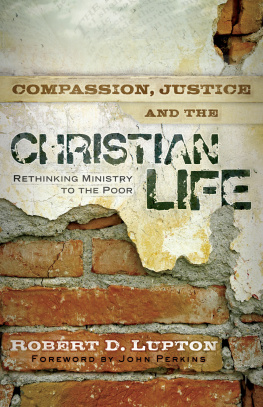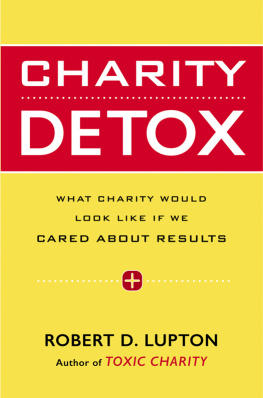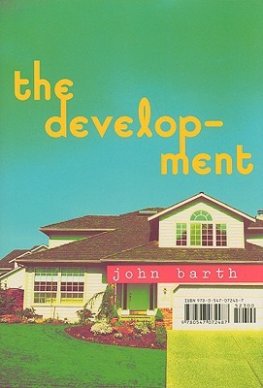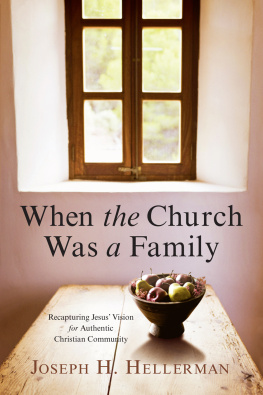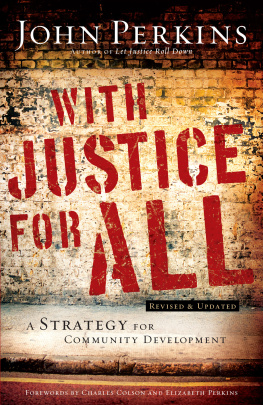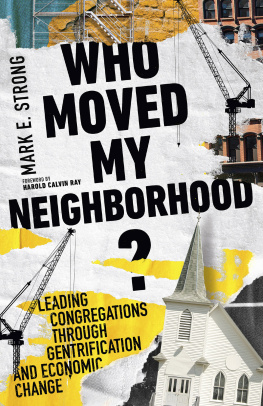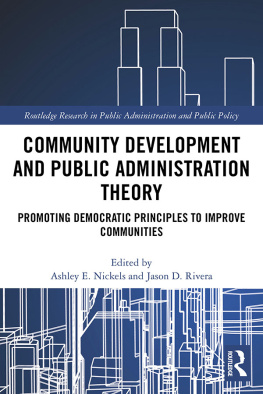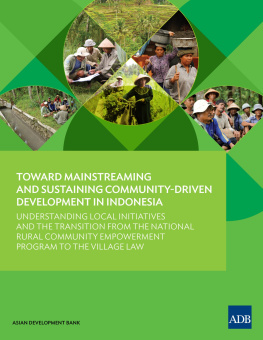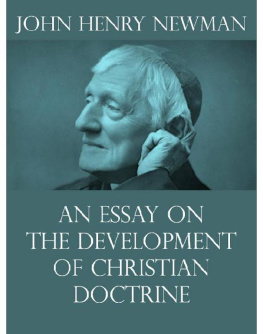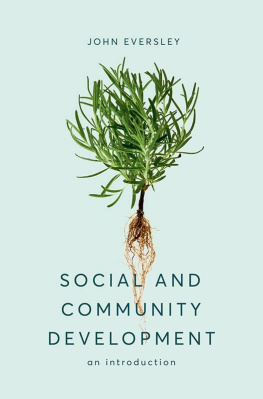
2007 CCDA
Originally published as And You Call Yourself a Christian.
Published by Baker Books
a division of Baker Publishing Group
P.O. Box 6287, Grand Rapids, MI 49516-6287
www.bakerbooks.com
Baker Books edition published 2014
ISBN 978-1-4412-2410-1
Previously published by Regal Books
Ebook edition originally created 2011
All rights reserved. No part of this publication may be reproduced, stored in a retrieval system, or transmitted in any form or by any meansfor example, electronic, photocopy, recordingwithout the prior written permission of the publisher. The only exception is brief quotations in printed reviews.
Library of Congress Cataloging-in-Publication Data is on file at the Library of Congress, Washington, DC.
All Scripture quotations, unless otherwise indicated, are taken from the New King James Version. Copyright 1979, 1980, 1982 by Thomas Nelson, Inc. Used by permission. All rights reserved.
Other versions used are:
KJVKing James Version. Authorized King James Version.
NIVScripture taken from the Holy Bible, New International Version. Copyright 1973, 1978, 1984 by International Bible Society. Used by permission of Zondervan Publishing House. All rights reserved.
This book was made possible
because of Howard and Roberta Ahmansons
long-term support for CCDA.
CONTENTS
John Perkins
PART I
WHATS WRONG WITH THIS PICTURE?
Chapter 1
What Does Jesus Say?
Chapter 2
What About Root Causes?
Chapter 3
Serving and Controlling
Chapter 4
Clothes Closets and Compassion
Chapter 5
Community-Friendly Church
PART II
IS IT TIME TO CONSIDER A CHANGE?
Chapter 6
Helping John
Chapter 7
Betterment to Development
Chapter 8
On Doing Good
Chapter 9
Occupying the High Ground
Chapter 10
The Problem of Parking
Chapter 11
Servants or Friends?
PART III
TOWARD RESPONSIBLE CHARITY
Chapter 12
On Care and Accountability
Chapter 13
Going Deeper with Development
Chapter 14
So You Want to Change a Bad Neighborhood, Do You?
Chapter 15
Making the Neighborhood Work
Chapter 16
Community-Friendly Programs
Chapter 17
Transition from Programs to Development
PART IV
FINAL THOUGHTS
Chapter 18
Toward a Theology of Gentrification
Chapter 19
A Gift Fit for a King
Appendix
The Eight Components of Christian Community Development
Dr. Wayne L. Gordon, CCDA Chairman
FOREWORD
I have been proud to call Bob Lupton a friend for a number of years. Bob has been engaged in Christian community development for more than three decades in his native city of Atlanta, Georgia. And he has walked the walk as well as talked the talk.
He and his family have lived in the inner city neighborhoods that he has worked so faithfully and tirelessly to help redevelop.
In these pages, Bob shares what he has learnedsome of it the hard way, as he will tell youabout the strategies, tactics and convictions needed for successful Christian community development. And his principles are based solidly in his belief in the authority of the Bible.
I can think of no better person to be writing about the subject of community development from a Christian perspective than Bob Lupton. And I think that as you read this book, you will agree.
John Perkins
President, John M. Perkins Foundation
and CCDA Chair Emeritus
PREFACE
The urban landscape is rapidly changing. Not long ago, the inner city was considered the wasteland for the disenfranchised. Not any longer, though. Long-neglected communities are now being rediscovered as rich new development opportunities. When the veteran founders of the Christian Community Development Association first advanced the bold R of relocation in their three-R strategy (relocation, reconciliation and redistribution), it seemed like a very risky and radical move. Little did they realize that in a couple of short decades, the dangerous ghettos into which they urged urban workers to move would become the high-rent districts of loft apartments, condos, avant-garde art studios and gourmet eateries. Never could they have imagined that relocating for ministry purposes into a community of need and buying and renovating a home would be the very spark that would ignite the fires of gentrificationa movement that is now displacing the poor at an alarming rate from those very neighborhoods. The urban landscape is indeed changing, and with that change, our ministry strategies must change if we are to remain effective agents of both compassion and justice.
Urban ministries, then, are at a crossroad. Those committed to long-term relationships with the poor are discovering that their low-income neighbors are slowly but steadily disappearing from their neighborhoods. The affordable rental houses and apartments that have been homes for the poor for generations are being sold and renovated, and rents are skyrocketing. In an attempt to maintain relationships with their members (most often the youth in their programs), urban ministries are purchasing vans to shuttle participants back to their centers. But this strategy is proving to be stop-gap at best. The cost of vans, insurance, gas and driving time eventually reaches the point of diminishing returns, and ministries face the hard reality that their centers will no longer hold. They face a T in the road.
One option for these churches is to change their facility-centered programs and become migrant ministries that follow the streams of poor who are migrating out to the less expensive, class-B apartment complexes in the inner-ring suburbs. There they can establish satellite ministry centers that will be mobile and flexible enough to shift with the demographic tides. In these cases, though, the church center in the inner city may lose much of its strategic value and may need to be adapted for other uses that better fit the changing community there. But the benefit of this option is that it affords the opportunity to keep relationships intact over time.
Another direction is community development, an option that enables low-income residents to remain in the neighborhood and participate in the benefits of a reviving community. This requires an even larger shift in ministry strategy. It involves real estate developmentan area in which few urban ministries have had experience. In order to retain affordable housing in a gentrifying community, land and/or buildings must be purchased before their value appreciates. This calls for new sources of funds and new ways of financing. A professional revitalization plan must be designed that demonstrates the economic feasibility of mixed-income developmenta requirement if a ministry is to attract the substantial loans and grants required to implement the vision. Such a community development strategy obviously calls for a range of talents (architecture, engineering, construction, financing, property management, to name a few) not commonly found among urban ministries. The good news, of course, is that these talents are abundant in the pews of the more affluent churches. The challenge is to connect these marketplace gifts to a Kingdom vision in the city. New partnerships must be formed, new organizational structures must be created, new funding sources must be identifiedthese are the essential new technologies of compassion that are needed to do justice in the changing urban world.
Next page
